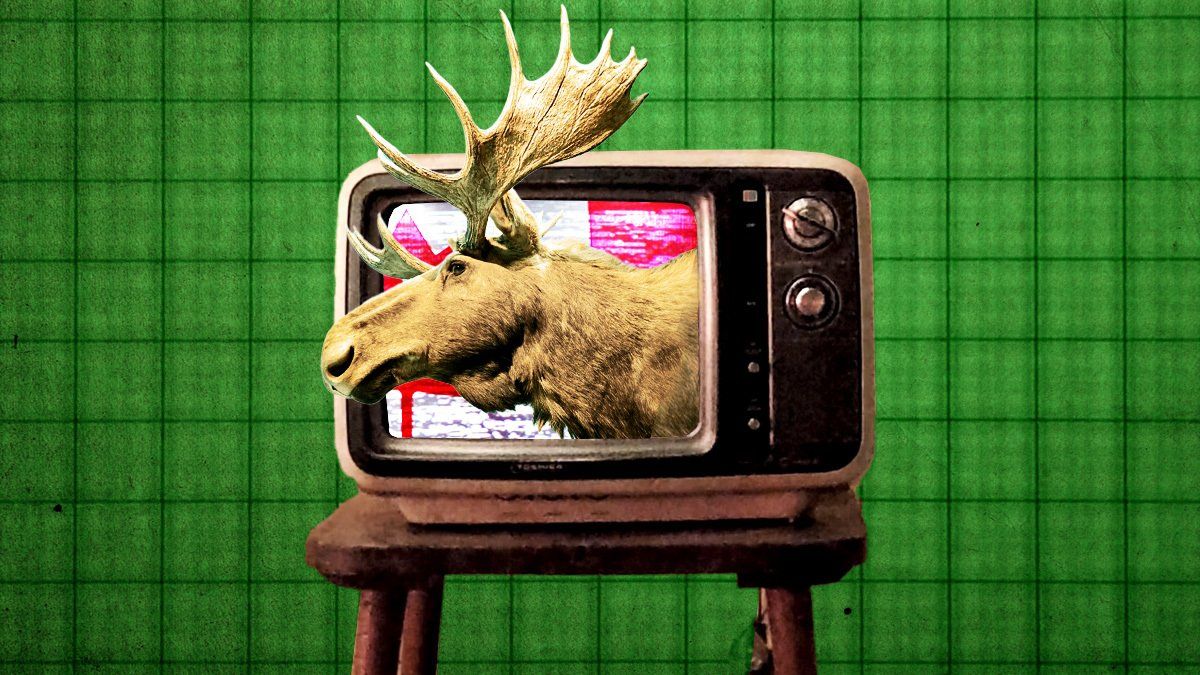May 22, 2025
Against the backdrop of surging Canadian nationalism in the face of US President Donald Trump’s threats and bullying, an Ottawa regulator is now trying to answer a deceptively simple question: What is “Canadian culture”?
The review is tied to implementation of the Trudeau-era Online Streaming Act, which requires digital streaming services that operate in Canada to help fund and promote “Canadian” content just as TV broadcasters have long had to.
The rule would force streamers to pay 5% of their Canadian revenues into a fund meant to promote Canadian content. The idea behind the act is to harness the power of large (read: American) media giants to incubate and develop more Canadian-made films and programming. The rules are based on a long-standing setup requiring TV broadcasters to pay 30% of their revenues into the fund.
Not surprisingly, the big American streaming services like Netflix, Disney+, Paramount+, and Amazon Prime aren’t keen on being told by Canada how to produce and promote their products, nor are they psyched about being obligated to pay for it.
And so, they, with backing from the Trump administration, are disputing the Canadian government’s right to extract money from them for these purposes.
They prefer a more flexible system that doesn’t require them to payinto the fund and which accounts for money they already and directly spend on Canadian production. The streaming companies maintain they are, above all, international, not domestic, outfits.
If they don’t get their way, they could challenge the rules under the terms of the current USMCA trade agreement or, in an extreme but unlikely case, withdraw from Canada altogether. Disputes over the streaming requirements could also bleed into other sensitive negotiations about US tariffs on Canadian metals, energy, and automobiles. Trump also recently proposed a 100% tariff on foreign films, which could be a big blow to the Canadian film industry.
All of this is happening in the wake of Trump’sthreats to make Canada the “cherished” 51st US state. Canadians are buying local, refusing to travel stateside, and booing “The Star-Spangled Banner.” Alongside this surge of nationalist fervor, Canadians, who do support protecting industry jobs, are also expecting streaming and broadcasting services to tell their stories alongside the US-dominated offerings.
A Canadian Radio-television and Telecommunications Commission poll confirms as much: A full 80% said that “highlighting Canadian culture and identity” is somewhat or very important, while 77% said the same about “cultivating a sense of shared Canadian identity.”
But there’s a catch: The regulators’ definition of “culture” as applied to legacy broadcasters and film producers has come in for criticism from some Canadian groups. The current definition focuses on the citizenship of the production team rather than the subject of the content — not what is being presented, but who is making it.
In other words, a film about a Florida football team made by a Canadian production company could be considered “Canadian content,” while an American-produced film about a maple-syrup-powered hockey team from Manitoba might not.
Some Canadian media execs see that standard as flawed. Matt Hatfield, executive director of OpenMedia — who will appear before the regulator this week — says the CRTC is failing to meet the moment.
The system, he says, “is sold to Canadians as being about telling Canadian stories. In practice, it’s about industry jobs. It has nothing to do with our stories, and that’s incredibly frustrating and unacceptable.”
All of this puts Carney’s government in a tight spot. It’s wary of upsetting the Trump administration any more than it needs to. But it’s also on the hook for implementing a law that the previous government, under Justin Trudeau, brought in — one that irritated the Americans from day one and still does. The existing rules are supported strongly by the Canadian film and TV industries that want to boost employment, but they rub many ordinary Canadians the wrong way.
The Culture clash: If push comes to shove with the Trump administration, will Carney go to the mat to defend a system that has come in for so much criticism — not only from abroad but at home too?
It will, so to speak, be a defining moment for Canadian culture.
More For You
- YouTube
At the 2026 World Economic Forum in Davos, GZERO’s Tony Maciulis spoke with Ariel Ekblaw, Founder of the Aurelia Institute, about how scaling up infrastructure in space could unlock transformative breakthroughs on Earth.
Most Popular
Haitian soldiers keep a watch outside the venue where businessman Laurent Saint-Cyr is set to be designated as president of Haiti's Transitional Presidential Council (CPT), in Port-au-Prince, Haiti, August 7, 2025.
REUTERS/Fildor Pq Egeder/File Photo
On Friday, US officials warned the transitional council in charge of Haiti not to remove interim Prime Minister Alix Didier Fils-Aimé, ahead of a deadline for the council to step down on Feb. 7.
Moldovan President Maia Sandu speaks during a Council of Europe diplomatic conference to launch the International Claims Commission for Ukraine, aimed at handling compensation claims related to Russia's war in Ukraine, in The Hague, Netherlands, December 16, 2025.
REUTERS/Piroschka van de Wouw
The president of the tiny eastern European country has suggested possibly merging with a neighbor.
Hard numbers: US pitches “New Gaza,” Japan paves way for snap elections, “Sinners” smashes records, & More
Jan 23, 2026
Middle East negotiator and son-in-law of President Trump, Jared Kushner talks with Israeli diplomats following a joint press conference in the State Dining Room of the White House in Washington, DC, USA, 29 September 2025.
$25 billion: The minimum amount of investment required to fulfil Jared Kushner’s ambitious property plan for Gaza.
© 2025 GZERO Media. All Rights Reserved | A Eurasia Group media company.
